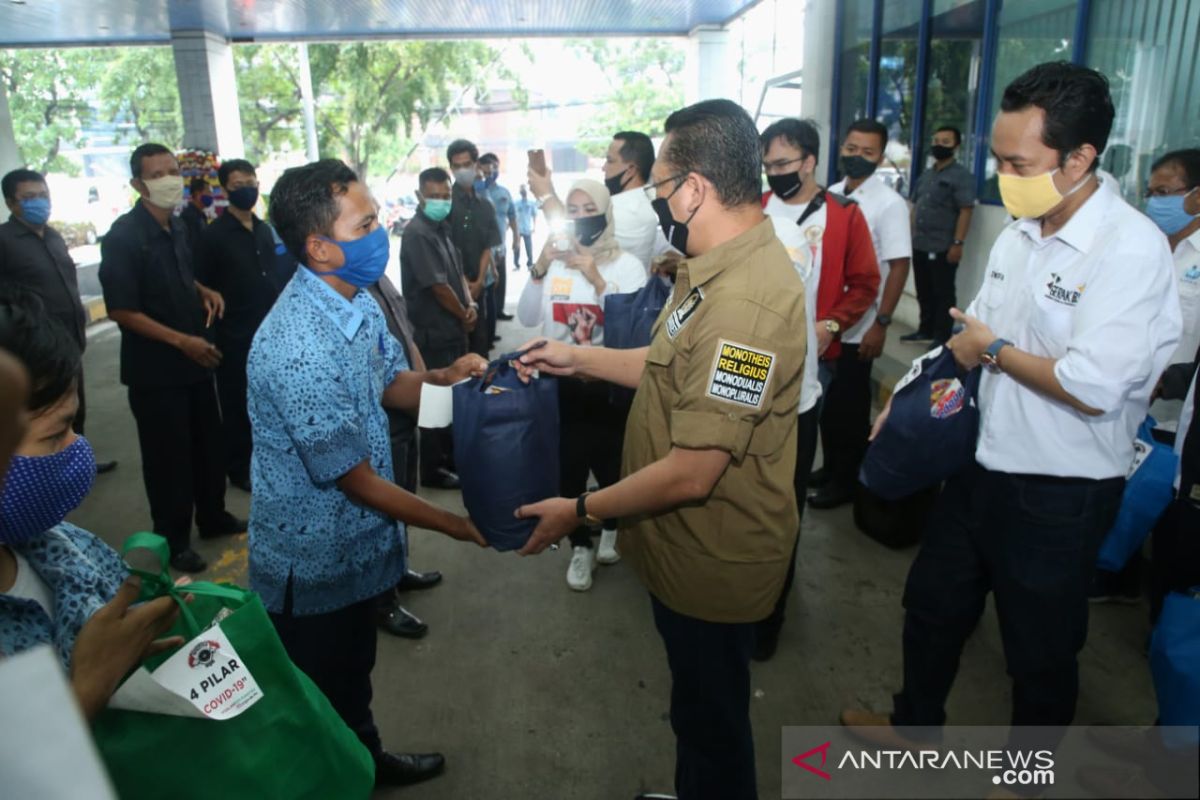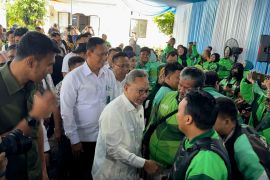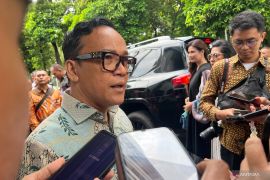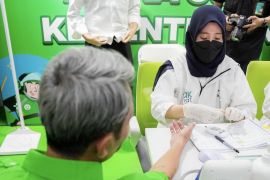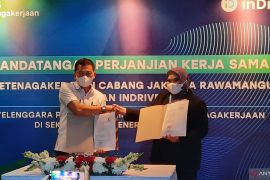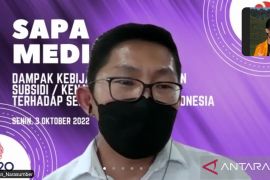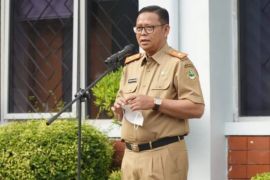"The COVID-19 (outbreak) has cut a significant chunk of taxi drivers' incomes," he told journalists on Monday, after distributing aid packages to members of the Blue Bird Taxi Drivers Association in Jakarta.
Prior to the COVID-19 pandemic, regular taxi drivers faced stiff competition from online taxis. At present, amid the enforcement of large-scale social restrictions, they are not easily getting passengers due to the closure of offices in affected cities, he pointed out.
The aid packages that Bambang Soesatyo distributed on Monday comprised staple food items, such as rice and cooking oil, as well as canned meat, instant noodles, soy sauce, tea and milk, soaps, and hand sanitizers.
Along with members of BS Movement and Volunteers of Four Pillars, Bambang Soesatyo has been frequently distributing aid packages to community members severely affected by the fallout from the coronavirus outbreak.
"With the caring and sharing movement (involving) all of us, we will hopefully help them (affected families) continue their lives amid this COVID-19 pandemic. At least, they need not get worried about their daily meals," Bambang Soesatyo said.
The Indonesian Government's spokesperson for COVID-19 task force, Achmad Yurianto, had said earlier that the situation in Indonesia would likely improve in June and July this year, if the entire nation upholds the spirit of "gotong royong”, or mutual cooperation, and observes strict discipline in the fight against COVID-19.
In a recent statement, President Joko Widodo also highlighted the significance of fostering the spirit of "gotong royong" because the government cannot single-handedly fight the spread of coronavirus infections.
The coronavirus outbreak initially struck the Chinese city of Wuhan at the end of 2019, and spread across the globe, including to countries in the Asia-Pacific region.
The Indonesian Government officially announced the country's first confirmed cases on March 2, 2020.
Since then, the central and regional governments across the nation have striven persistently to flatten the coronavirus curve by imposing healthcare protocols and social restrictions.
To break the chain of the transmission of COVID-19, which has impacted the purchasing power of a large number of families in Indonesia, large-scale social restrictions have been enforced in several cities, including Jakarta, Bogor, Depok, Tangerang, and Bekasi. (INE)
Related news: MPR seeks government's attention for groups prone to COVID-19
Related news: Ministry distributes 56,125 aid packages to COVID-19-affected families
EDITED BY INE
Translator: Imam B, Rahmad Nasution
Editor: Suharto
Copyright © ANTARA 2020
